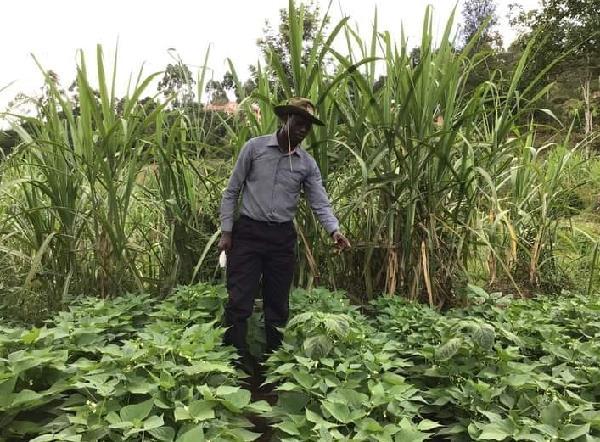Diversify export markets or adapt to EU recommendations
Kenya
Monday 21 June 2021
FJ
Mr. Okisegere Ojepat, CEO of the Consortium, during a visit to a small Kenyan green bean producer (Photo: facebook / Fresh-Produce-Consortium-of-Kenya).
The European Union buys around 70% of the flowers, vegetables and fruits exported by Kenya. But the EU plans to adopt new standards for the use of pesticides in 2022. This raises fears in Kenya of a drop in yields.
According to the Fresh Produce Consortium of Kenya, the European Union purchases around 70% of the flowers, vegetables and fruits exported by Kenya. In order to reduce this dependence, Kenyan professionals believe that it is necessary to diversify the destinations and seek new markets in the United States, China, Thailand, the Middle East and India.
In Kenya, as in most countries in East Africa, agricultural productivity has not improved since the start of the pandemic. However, the level of production has been maintained for the country's main crops. But this productivity is threatened by the European Union's decision to implement a Sustainable Use of Pesticides Policy in 2022.
According to Agrochemical Association of Kenya and Fresh Produce Consortium of Kenya, if the country adopts EU recommendations, i.e. a virtual ban on pesticides, productivity will halve and annual revenues from fresh produce will drop sharply.
For Kenyan professionals, this ban on the use of pesticides does not take into account the risk assessment in a tropical country like Kenya where diseases and parasites are present all year round.
According to Fresh Produce Consortium of Kenya, the country should stick to guidelines, standards and recommendations on food safety and food security as stipulated by WHO (World Health Organization) and FAO (Food and Agriculture Organization).
source : standardmedia.co.ke, xinhuanet.com, capetalk.co.za





